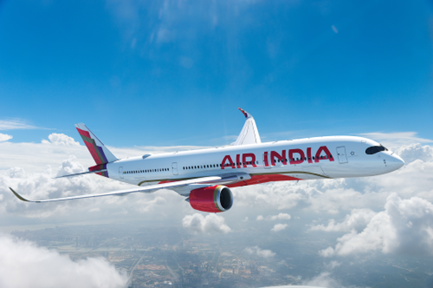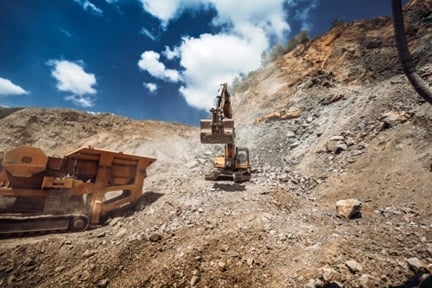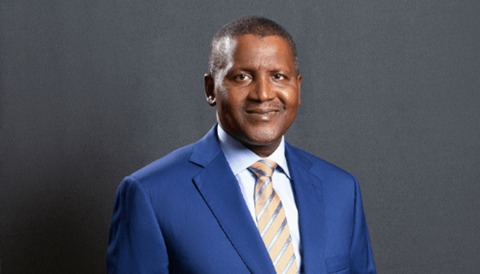African start-ups face a funding winter
VC funding in African start-ups drops 62% this year
By Max Cuvellier Giacomelli

Q2 2023 has been another rough quarter in terms of fundraising for start-ups in Africa. Despite some sizeable announcements in May from M-Kopa (US$ 200m debt + US$ 55m equity), Sun King (US$ 150m), and TymeBank ($78m pre-Series C), the level of funding raised by start-ups in Africa in Q2 2023 was 31% lower than a year earlier. If we compare equity funding only (therefore removing debt, grants etc.), the results are even more concerning: -62% YoY and -34% QoQ. And it is probably a fairer representation of the reality, given that a few large debt deals are otherwise skewing the numbers, and that it feels like debt had been underreported in the past, and is now being announced and discussed a lot more as a result of the relative dearth of equity deals, especially of the larger kind.
But for this quarterly analysis, rather than studying Q2 2023 results in depth, I suggest we instead look together at the past twelve months, which represent the first year since the so-called ‘funding winter’ hit the continent. Indeed, while investments started to slow down significantly in the US and China in early 2022 - before almost every other continent was hit -, it was not until Q3 2022 that the numbers dropped in Africa. Why was that? There is probably a long list of factors playing into this delay, however my feeling is that investors in Africa overall have a higher risk appetite, and therefore take a longer time to react to crises (in this case the Ukraine conflict and its global implications on inflation, energy prices etc.) than investors in other regions.

Yet the funding winter eventually reached Africa’s shores, which translated in a serious decrease in funding activity. All the more so as the period directly preceding was in fact a ‘funding heatwave’ for the continent: July 2021 to June 2022 was the consecutive 12-month period during which the ecosystem in Africa recorded the highest levels of funding activity both in total amount raised (US$ 5.6bn) and total number of equity deals (860). A year on, these numbers have dropped by 62% and 35% respectively. In other terms, start-ups in Africa raised 2.7 times less equity funding during the past twelve months that then had done during the previous period.
Where is this drop coming from? Given the scale of the contraction, it affected everyone. While fintech saw the biggest contraction in absolute terms (from US$3 billion to US$900 million, -69% YoY), it did impact every single sector. Geographically speaking, Nigeria took the largest hit (from US$2 billion to US$470 million, -77% YoY) but very few markets came out unscathed. Notably, the number of very large US$100m+ transactions (equity, debt or exits) – which tend to contribute significantly to overall numbers and trends – went down from 17 during the heatwave to just 4 during the funding winter.
Now, what explains all of this? Personally, I don’t think there are any aggravating factors that make the funding winter particularly harsher in Africa. In fact, according to CB Insights’ numbers for other geographies, the situation on the continent might not be as bad as other continents’. Inflation in Egypt, unrest in Kenya, loadshedding in South Africa, elections in Nigeria…oOf course these elements have an impact on business at the end of the day, but they are circumstantial. One could therefore ask why the global context is affecting VC investments in Africa so much, if at all? The reality is that a large proportion of the LPs providing the capital for VCs to deploy in Africa are themselves US- or Europe-based and therefore feeling the crunch. There is anecdotal evidence that some LPs have been defaulting on their commitments – though not in large proportions –, and that GPs are under more pressure than they were when money felt inexhaustible.
A year into the funding winter, the question on everyone’s lips is obviously: How much longer will it last? First of all, it is very important to note that (a) there are still many start-ups in Africa having great traction and therefore being attractive potential investments for VCs, and that (b) VC funding available to be deployed in Africa has not run out. As a matter of fact, in the past six months new funds worth hundreds of millions of dollars have been announced focusing on climate-related ventures in Africa alone. In short: there are investable ventures, and liquid investors. The number of US$100k+ equity deals only dropped by a third between the funding heatwave and the funding heatwave. Start-ups and investors alike are also diversifying their approaches, with debt - and to a lesser extent exits - on the rise. After all, debt-funded growth and consolidation aren’t unusual features in a bear market.
At the end of the day however, the main issue remains volume. Indeed, in the past twelve months we recorded 560 deals worth just over US$2 billion on the continent. Per week, this represents a little under 11 deals worth just US$40 million. Not to mention investment remains heavily concentrated in the Big Four (80%+ of the total amount raised). As a result, as long as activity does not pick up significantly, results of the ecosystem will continue to be disproportionately influenced by circumstances whether they are an election is one of the Big Four creating a less favourable business climate for a few months, a mega deal taking longer than expected to get signed, or some of the continent’s most active investors pausing investments while they raise their next funds (which is currently happening)
Find out more about start-up funding in Africa at Africa: The Big Deal, a project by Max Cuvellier Giacomelli and Maxime Bayen.














/enri-thumbnails/careeropportunities1f0caf1c-a12d-479c-be7c-3c04e085c617.tmb-mega-menu.jpg?Culture=en&sfvrsn=d7261e3b_1)

/cradle-thumbnails/research-capabilities1516d0ba63aa44f0b4ee77a8c05263b2.tmb-mega-menu.jpg?Culture=en&sfvrsn=1bc94f8_1)







